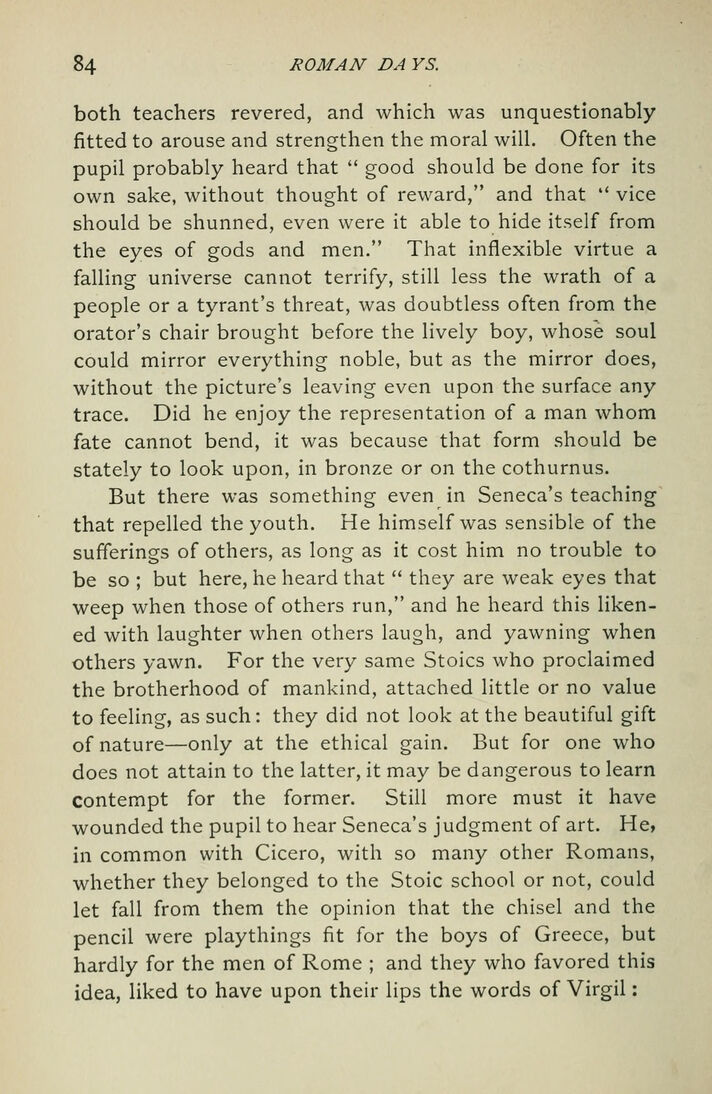
Full resolution (JPEG) - On this page / på denna sida - The Roman Emperors in Marble - 5. Nero

<< prev. page << föreg. sida << >> nästa sida >> next page >>
Below is the raw OCR text
from the above scanned image.
Do you see an error? Proofread the page now!
Här nedan syns maskintolkade texten från faksimilbilden ovan.
Ser du något fel? Korrekturläs sidan nu!
This page has never been proofread. / Denna sida har aldrig korrekturlästs.
84 ROMAN DA YS.
both teachers revered, and which was unquestionably
fitted to arouse and strengthen the moral will. Often the
pupil probably heard that " good should be done for its
own sake, without thought of reward," and that " vice
should be shunned, even were it able to hide itself from
the eyes of gods and men." That inflexible virtue a
falling universe cannot terrify, still less the wrath of a
people or a tyrant’s threat, was doubtless often from the
orator’s chair brought before the lively boy, whose soul
could mirror everything noble, but as the mirror does,
without the picture’s leaving even upon the surface any
trace. Did he enjoy the representation of a man whom
fate cannot bend, it was because that form should be
stately to look upon, in bronze or on the cothurnus.
But there was something even in Seneca’s teaching
that repelled the youth. He himself was sensible of the
sufferings of others, as long as it cost him no trouble to
be so ; but here, he heard that " they are weak eyes that
weep when those of others run," and he heard this liken-
ed with laughter when others laugh, and yawning when
others yawn. For the very same Stoics who proclaimed
the brotherhood of mankind, attached little or no value
to feeling, as such: they did not look at the beautiful gift
of nature—only at the ethical gain. But for one who
does not attain to the latter, it may be dangerous to learn
contempt for the former. Still more must it have
wounded the pupil to hear Seneca’s judgment of art. He,
in common with Cicero, with so many other Romans,
whether they belonged to the Stoic school or not, could
let fall from them the opinion that the chisel and the
pencil were playthings fit for the boys of Greece, but
hardly for the men of Rome ; and they who favored this
idea, liked to have upon their lips the words of Virgil
:
<< prev. page << föreg. sida << >> nästa sida >> next page >>